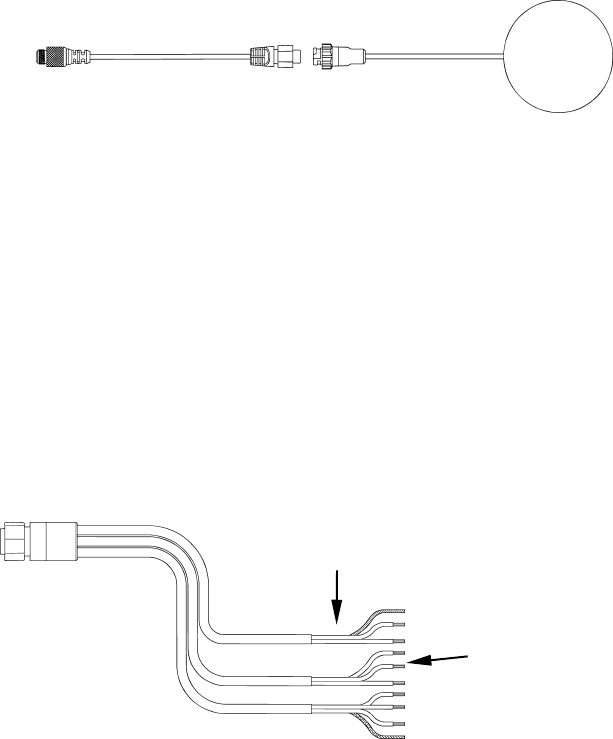
32
LGC-2000 remote connection to NMEA 2000 buss.
NOTE:
An existing operational NMEA 2000 buss will already have termina-
tors in place and will already be powered. If you're connecting to such a
network, you won't need the terminators or extension cable provided.
Do not add terminators or power to a functional NMEA 2000 buss!
When the LGC-2000 is connected to the unit (directly or indirectly), it
will begin providing GPS signal information.
Power Connections
Your unit comes with a power/data cable that splits into three ends,
each with several exposed wires (shown in the following figure). The
end with 4 wires (blue, yellow, orange and shield) is a Data cable that
connects to a NMEA 0183 interface. The end with three wires (red,
black and shield) is a power cable that connects to a NMEA 2000 buss.
The thicker three-wire cable (red, black and white) is the Power Supply
for your unit (and optional external speaker connection for some units).
The Power/Data cable for this unit.
Depending on your configuration, you may not use all of these wires.
The following segments include instructions for installing all the wires
that you will use with this unit.
Caution
All of the wires in the power/data cable have bare ends for eas-
ier installation. The bare ends on any unused wires could cause
an electrical short if left exposed. To prevent this, you should
cover the individual wire ends – either by capping them with
wire nuts or wrapping them with electrical tape. (You should cut
off the bare wire before taping off the ends.)
To unit
Data Cable wires: blue,
yellow, orange and shield
Power Supply wires:
red, black and white
NMEA 2000 Power wires:
red, black and shield
To NMEA 2000
network port
LGC-2000


















